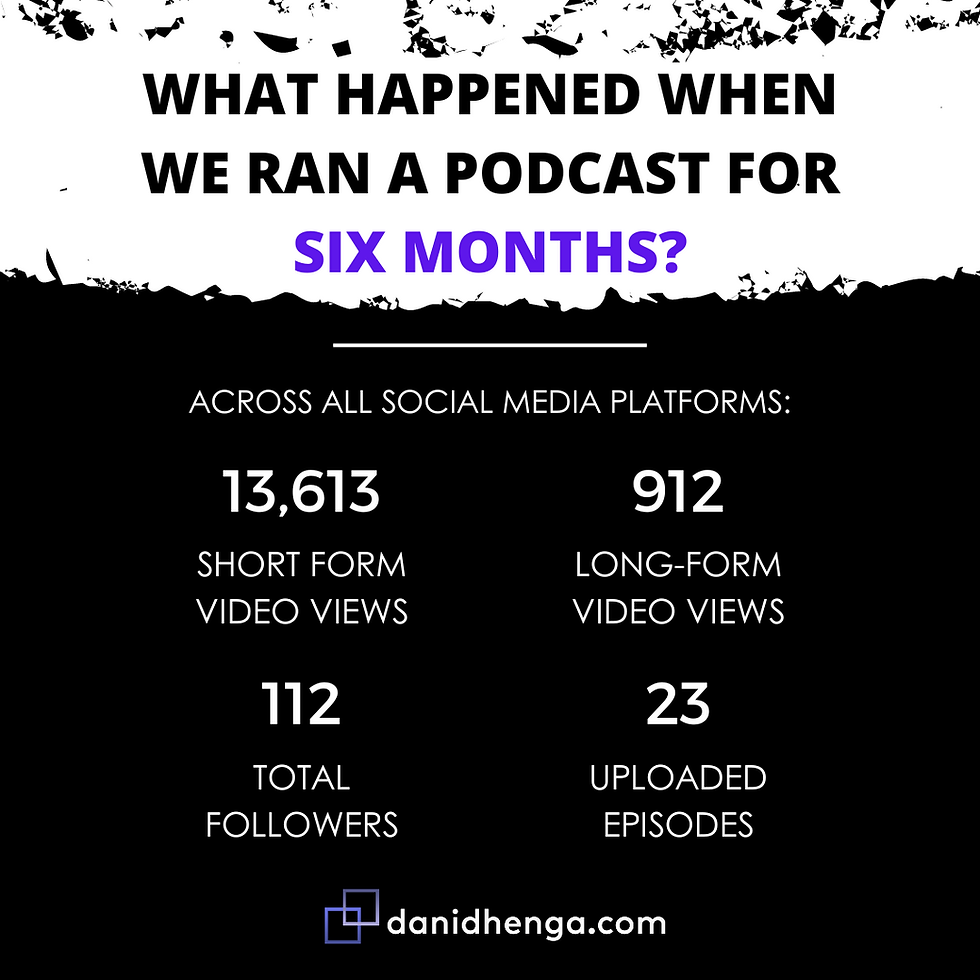How to Show Vulnerability as a Leader | Dan Idhenga
- Dan Pandeni Idhenga
- Mar 15, 2020
- 2 min read
Updated: Jul 22, 2024
Many people confuse vulnerability for weakness, as a leader it's important to understand the distinction.

One of the biggest mistakes leaders make, young and old, within business and outside, all too often tend to make is covering up their vulnerabilities and acting as though they’re stoic cowboys or sages impervious to emotional pain. Not only is this obviously not true, but it’s also a stance that can hurt you with your company.
"Projecting a façade of invulnerability can make everyone tense."
For one thing, your employees want to know that they’re working for a person who cares and empathises with others, not an emotionless egotistical psychopath who refuses to admit an ounce of weakness. As such, projecting an aura of invulnerability can really result in one of unapproachability, which is never something you want to follow you in business. There’s also the fact that your claim of invulnerability is likely to come off as a lie – never a good trait for leaders.
But how can you show vulnerability as a leader without looking “weak?”
“Weak” Versus “Human”
First, it’s vital to distinguish between looking “weak” and “human.” Making mistakes, failing from time to time – that’s human. Everyone does that, including your employees, and they’ll want to know that they’re not the end of the world. Projecting a façade of invulnerability can make everyone tense. Allowing for brief vulnerability can help people empathize and, thus, connect as a team.
Toxic Culture
One of the modern sources of this invulnerability myth is toxic masculinity and, to an extent, toxic femininity. The former too often scorns emotions as “weak,” leading to repressed rage and the kind of appearance of false stoicism and transparent insincerity we discussed before. The latter too often seeks to compensate for the very real problem of sexism and women being marginalized at work by going the other direction and becoming overly aggressive and hostile.
Sharing vulnerabilities can help you connect, become relatable, and succeed in interpersonal business ventures. Personal or workplace toxicity creating a lie of invulnerability will simply poison all that.
A Loss of Confidence
Think admitting to vulnerabilities and mistakes will cause people to lose confidence? Think again. While some people will always be petty and pounce on the vulnerable, those with brains and emotional cores understand that revealing vulnerabilities takes courage and is, indeed, a sign of moral fiber and strength.
Honesty in showing vulnerability is a vital strategy for dealing with tough times and setbacks in business and life.




Comments